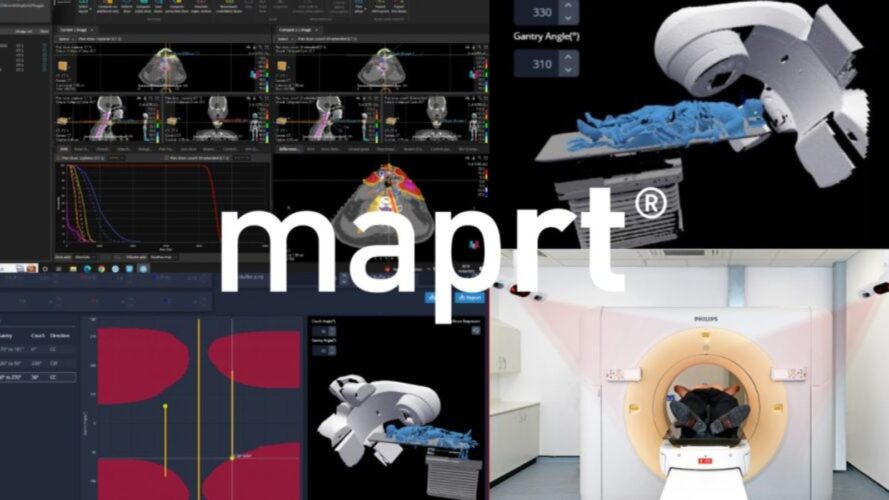Vision RT launches MapRT at ESTRO 2023

New solution brings together SGRT for sim, treatment and now, planning
SGRT has shown great value in both simulation, and treatment delivery, and has become the standard of care in most of the developed world. However, many publications have also hinted at the potential benefit of SGRT for predicting collisions and clearances in radiation therapy.
Increasingly, SBRT, hypofractionation and re-treatments are all driving demand for non-coplanar planning. Traditionally, non-coplanar treatments are resource-intensive, requiring extra planning and machine time, both for dry runs and for treatment. Additionally, some non-coplanar plans are not deliverable, which can lead to complicated re-planning and repeat quality assurance work, leading to delays to patient treatment and increased costs.
A new solution from Vision RT is intended to make non-coplanar treatments fast, easy and safe. MapRT uses SGRT to deliver a “clearance map”, which planners use to check which beams are deliverable during plan creation. Unlike other clearance checkers, MapRT images the entire surface of the patient and accessories to detect collisions in the most frequent problem areas such as elbows. In addition, the clearance map checks safety for all couch and gantry angles, so planners have guidance to increase couch kicks and lengthen arcs – for better plans with confidence in delivery.
Helen Convery, Senior Dosimetrist (Development & Clinical Trials), who has tried out MapRT in a clinical setting, said “We see significant value in three areas: checking patient position at CT to ensure a robust setup and avoid unnecessary dose from scans in an unusable position; enhancing planning through increasing the range of beam options; improving the use of resources and the patient experience by avoiding dry runs and delays due to last minute replans.”
While MapRT is compatible with all treatment planning systems using DICOM files, RaySearch Laboratories has already developed the first deeper integration with the system. This automates clearance checking within RayStation, showing beam clearances during the planning process. Additional integration of automation and clearance mapping is in development and will be reported at forthcoming congresses.
Thomas Carter, VP marketing at Vision RT, said “SGRT is now achieving its full potential as Surface Guidance throughout the entire Radiation Therapy process. The use of SGRT for planning has the potential to free up resources and make treatments more predictable, while allowing clinics to deliver better patient care.”
MapRT uses exclusively licenced patents 62/128,906, 15/555,669, PCT/US2016/02023 4 and 16759347.4.

